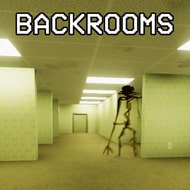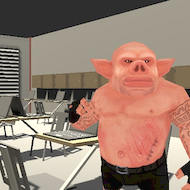

Surze is a psychological horror game that emphasizes distorted reality, shifting perspectives, and unreliable perception. Unlike traditional horror titles that rely on monsters or simple chases, Surze blurs the boundary between dream and waking, forcing players to question what is real and what is illusion. The environment twists unexpectedly, hallways extend forever, and rooms change shape when revisited. The goal is not only to escape but also to maintain clarity as the world collapses into surreal and threatening fragments.
Surze challenges players to navigate shifting environments while piecing together fragments of a hidden story. Movement is straightforward, but progression is complicated by constant changes in architecture. A doorway may lead to an endless loop, a staircase may suddenly lead back to the beginning, or an object may appear where none existed moments earlier. The design forces players to adapt continuously while searching for hidden clues that reveal deeper meaning.
The threat in Surze is not always physical but psychological. Sound design amplifies unease, with whispers, distorted music, and sudden silences creating unpredictable tension. Visual distortions, flickering lights, and impossible geometry build the sense that the environment itself is hostile. While direct encounters with hostile figures may occur, the real fear stems from the loss of stability and certainty in the world.
Each session of Surze may play out differently, as environments shift and events trigger in varied ways. The lack of fixed structure encourages replay, with players revisiting to uncover hidden messages or to test theories about the true meaning of the experience. Some interpret the shifting spaces as a metaphor for trauma or memory loss, while others view them as manifestations of supernatural forces. The ambiguity is intentional, giving players freedom to create personal interpretations.
Surze offers an unsettling journey through distorted reality. By focusing on psychological unease and constantly changing environments, it creates a horror experience that is more about perception than direct confrontation. It leaves players questioning their own memory, their surroundings, and the nature of the game itself, making each playthrough a unique descent into uncertainty.